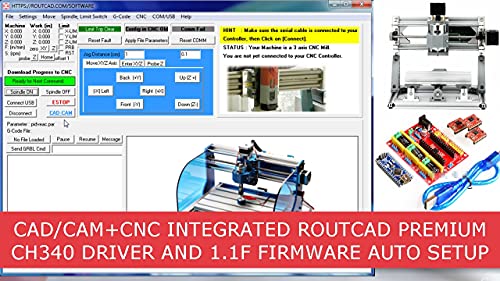ChooChooMike
Well-Known Member
- Joined
- Jan 5, 2008
- Messages
- 863
- Reaction score
- 13
I'd like advice on which of 2 welding classes to take at my local community college.
I'm almost a complete newbie at welding. I took a general metals course 4 years ago and got introduced to oxy/acetylene, TIG & MIG welding.
Class 1:
Class 2:
My aim is to gain some general welding skills/knowledge, no particular goal at this point. These are 2 of the available classes I can make.
So any advice on which is more practical for general use is appreciated. Depending on availability in the fall, I may then take the other one.
I'm leaning towards the arc welding if I can get in the class as it's full at the moment and am going tonite to see if the instructor will let me in anyway (folks tend to drop classes pretty quickly).
Thanks !
Mike
I'm almost a complete newbie at welding. I took a general metals course 4 years ago and got introduced to oxy/acetylene, TIG & MIG welding.
Class 1:
Welding 21- Basic Shielded Metal Arc Welding (SMAW)
3 units; 2 hours lecture, 4 hours lab
Credit, degree applicable
This is a basic course in shielded metal arc
welding designed to provide the student
with manipulative cutting and welding
skills in the flat and horizontal fillet posi-
tions. The course also includes a study of
welding nomenclature, equipment, occu-
pational safety, joint design, electrode clas-
sification, weld symbols, and blueprint
reading.
Class 2:
Welding 40abcd - Gas Tungsten Arc Welding (GTAW), Gas Metal Arc Welding (GMAW)
3 units; 2 hours lecture, 4 hours lab
Credit, degree applicable
In this course, students will develop
manipulative skills using Gas Tungsten Arc
Welding (GTAW) and Gas Metal Arc Weld-
ing (GMAW) processes on ferrous and non-
ferrous alloys. Emphasis is placed on the
requirements for certification in accor-
dance with AWS D.17.1:2001, specifica-
tions for Fusion Welding for Aerospace
Applications (formerly Mil-Standard-
1595A Qualifications of Aircraft, Missile
and Aerospace Fusion Welders).
My aim is to gain some general welding skills/knowledge, no particular goal at this point. These are 2 of the available classes I can make.
So any advice on which is more practical for general use is appreciated. Depending on availability in the fall, I may then take the other one.
I'm leaning towards the arc welding if I can get in the class as it's full at the moment and am going tonite to see if the instructor will let me in anyway (folks tend to drop classes pretty quickly).
Thanks !
Mike































































